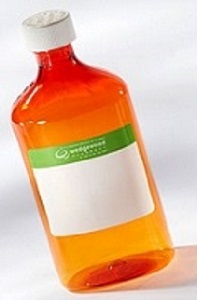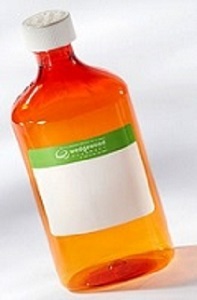Providing Quality & Trust
Benazepril Pimobendan Oral Oil Suspension
Wedgewood Pharmacy
Starting at $240.00
$240.00 Each
Detailed Description
Benazepril Pimobendan Oral Oil Suspension
Basic Information
Benazepril is an angiotensin-converting enzyme (ACE) inhibitor. It is used as a vasodilator in the treatment of congestive heart failure (CHF), systemic hypertension, chronic renal failure, and protein losing nephropathies. Studies in human medicine indicate that ACE inhibitor drugs improve exercise tolerance, improve quality of life and prolong life in heart failure patients.
Benazepril is a pro-drug that is metabolized by the liver into its active form, benazeprilat. In the active form, this drug blocks the conversion of angiotensin I to angiotensin II. Angiotensin II is a potent vasoconstrictor. When its concentrations are decreased, peripheral vascular resistance, blood pressure and aldosterone levels decrease, and plasma renin activity increases. Benazepril is rapidly absorbed after oral administration and is primarily eliminated by the kidneys. Although the liver metabolizes benazapril to the active form, liver dysfunction does not appear to significantly decrease the levels of benazeprilat.
Dogs and cats
ACE inhibitor drugs, such as benazepril and enalapril are considered mainstays for the treatment of CHF in dogs and cats. Benazepril is a particularly useful drug for the treatment of hypertension in dogs. While benazepril alone may be used to treat mild hypertension in cats, amlodipine or a combination of benazepril and amlodipine may be more effective in treating cats with severe hypertension. Benazepril may be combined with amlodipine, or beta-blockers in refractory cases of hypertension.
Benazepril is used to treat chronic renal-failure and proteinuria in both dogs and cats. The improvement in renal function is postulated to be due to the anti-hypertensive effect, the reduction in mesangial cell proliferation, and renal vasodilation, which causes a decrease in renal filtration pressure and decreased proteinuria. Benazepril has been shown to increase renal plasma flow and glomerular filtration rates in cats. It has also been shown to improve appetite in cats with chronic kidney disease. Although the studies on chronic kidney disease in dogs and cats show positive trends, there have not been studies that indicate a significant increase in survival time.
Basic Information
Pimobendan is a relatively new and unique inodilator (inotropic, mixed vasodilator). Its positive inotropic actions are caused by both inhibition of phosphodiesterase III and increased sensitization of myocardial contractile proteins to calcium. Digoxin and other inotropic drugs increase cardiac contractility by increasing the amount of intracellular calcium.
Pimobendan improves systolic efficiency without the negative pathway of increasing intracellular calcium. Pimobendan increases cardiac output and reduces both the cardiac preload and afterload. It is usually used in conjunction with other cardiac drugs (furosemide, digoxin, and enalapril). Pimobendan is metabolized by the liver.
Veterinary Medicine Uses for Pimobendan
Pimobendan is used to treat CHF due to atrioventricular valvular disease or DCM. Large clinical studies support using pimobendan in dogs that are symptomatic for CHF and in breeds of dogs that are at risk for the development of CHF due to DCM. The literature is consistently favorable about improvement in exercise tolerance, quality of life, and heart-failure score.
In one study of dogs with CHF due to atrioventricular valvular disease, the dogs that were treated with pimobendan survived 415 days in contrast to a survival time of 128 days for those that were treated with conventional cardiac drugs. The American College of Veterinary Internal Medicine has recommended using pimobendan in its 2009 consensus statement about treating CHF due to chronic valvular heart disease.
Most animals with clinical CHF will show a rapid response to pimobendan (one week). Cardiac enlargement generally is decreased within 30 days of treatment and the degree of size reduction is correlated with improvement in clinical status and increased survival time.
The studies of dogs that are at risk to develop CHF due to DCM have been performed primarily with Doberman Pinschers. The results are strikingly positive with an increased life-expectancy of nine months. These studies are being repeated in other breeds.
Potential Side-Effects of Pimobendan
Side effects that were found as a part of the field study for FDA approval for Vetmedin® include loss of appetite, lethargy, diarrhea, dyspnea, azotemia, and ataxia.
Drug Interactions with Pimobendan
Calcium channel blockers and certain beta blockers can decrease the effects of pimobendan.
Powered by nopCommerce
This site is running in live payment mode. Real payments will be processed.

